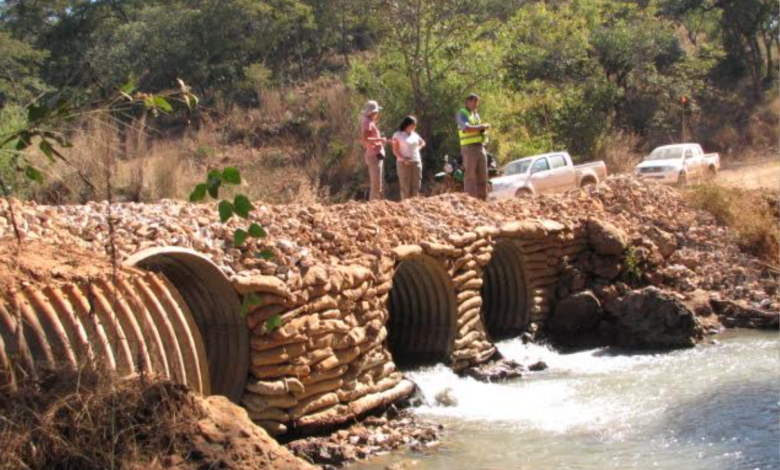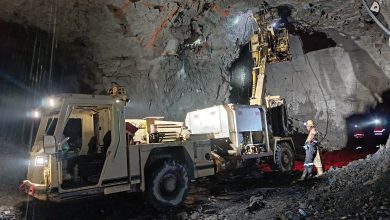
Responsible sourcing of cobalt puts spotlight on artisanal mining
With many rural communities in Africa being reliant on artisanal mining for their livelihoods, industries using cobalt are becoming sensitive to potential negative impacts in the mining supply chain.
News agency Reuters has reported there are 150,000 to 200,000 people in the Democratic Republic of Congo (DRC) alone who earn their living from informal cobalt mining. At the same time, manufacturers of products such as batteries and electric vehicles want to ensure that their supply chains are ethical, according to Wouter Jordaan, partner and principal environmental scientist at SRK Consulting.
“Social aspects such as human rights violations have come to the fore as serious risks to formal cobalt producers, as customers want better traceability and integrity in their supply chains,” said Jordaan. “Many companies are now applying or incorporating standards and guidelines such as the due diligence guidelines from the Organisation for Economic Cooperation and Development (OECD), to audit their supply chains.”
Human rights abuses
These principles – published as the OECD Due Diligence Guidance for Responsible Supply Chains of Minerals from Conflict-Affected and High-Risk Areas – affect mines which source minerals from artisanal miners, or any other mines for that matter, he said.
“Due to the history of human rights abuses in cobalt mining, investors and lenders are cautious about being involved in transactions in this sector, especially in Africa,” he said.
He noted that large volumes of cobalt were shipped out of Africa for processing abroad, so the due diligence process was now also starting to target the entire supply chain, even shipping companies –to track who is engaged in the logistical aspects of this trade. This is the only way of ensuring that minerals cannot be fed into a processing facility without its provenance being known.
Fair operation and trade
“Quite a few Sustainability and Responsible Sourcing Standards incorporate the OECD due diligence framework to check for human rights compliance, and also the International Labour Organisation’s (ILO) requirements to monitor labour conditions,” explained Jordaan. “Similarly, organisations like the Fair Cobalt Alliance focus on artisanal and small-scale mining, making interventions where they can in areas such as environmental rehabilitation.”
These guidelines, standards and groups are playing a steadily more important role in assuring lenders, end-users and consumers that the commodities in their products have been sourced responsibly. Jordaan added that the government in the DRC was working towards formalizing artisanal mining, but this was a difficult task.
“Government has tried to introduce more control over where artisanal mining can take place, and the channels through which the product can be sold,” he said. “One of the challenges is that government doesn’t monitor directly what actually happens at an operational level – so problems like unsafe working conditions and the use of child labour are not completely eliminated.”
Engagement
Jordaan highlighted that the miners themselves still earn only a fraction of the income that is generated – which undermines the potential impact of mining on community livelihoods. The interplay between formal mining companies and the artisanal workers remains a complex and difficult issue, but it is becoming clear that engagement is the best way forward.
As a basic foundation, for instance, mines are required to develop and apply a systematic Cahier de Charge – a plan for local social development – in consultation with local stakeholders. The communities that this plan affects often includes artisanal miners, who frequently work in deposits close to the mine itself. Operational decisions taken by the mines will invariably impact on these workers. SRK Consulting helps mines to facilitate the compulsory consultative process – as part of the Environmental and Social Impact Assessment – to ensure that social development plans align with the real needs and preferences of the communities.
“Artisanal mining sites tend to be served by many informal businesses, set up by community members drawn to these busy locations,” said Jordaan. “Where a formal mine is operating close to an artisanal area, there is scope for those small businesses to be drawn into the mine’s supply chain– and developed as sustainable enterprises.”
While issues such as artisanal mining and responsible sourcing in the mining sector reflect significant shifts in thinking and strategy, the essential direction of movement toward good mining practice is relatively constant and will continue strongly into 2024.
About SRK
SRK is an independent, global network of over 45 consulting practices on six continents. Its experienced engineers and scientists work with clients in multi-disciplinary teams to deliver integrated, sustainable technical solutions across a range of sectors – mining, water, environment, infrastructure and energy.






